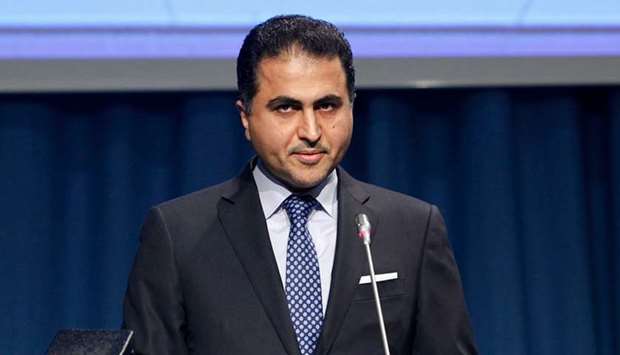Qatar has affirmed that it has adopted international and regional initiatives aimed at providing quality education to millions of children who have been deprived of this right due to poverty, armed conflict, insecurity, disasters and discrimination.
The Permanent Representative of Qatar to the United Nations Office in Geneva, Ambassador Ali Khalfan al-Mansouri, said in a statement at the opening of an event organised on the sidelines of the 40th session of the Human Rights Council that Qatar's keenness for education is not limited to its citizens and residents, but to the underprivileged children around the world.
The event was titled "Education in the 2030 agenda - No one left behind: children with disabilities, girls, forcibly displaced children and minorities".
He referred to the Protect Education in Insecurity and Conflict (PEIC) Programme, which is a founding member of the Global Coalition to Protect Education from Attack (GCPEA), and the Educate A Child programme, which succeeded as an unprecedented initiative to enroll 10mn children in school through the implementation of more than 65 projects in 50 countries, in partnership with 82 global partners.
This year, the ambassador said, marks the 30th anniversary of the UN Convention on the Rights of the Child, which is the most widely ratified human rights treaty, and which states that the right to education is among the basic rights of the child, pointing out that this anniversary represents a valuable opportunity for all parties to exert further efforts to provide and protect this right.
He also stressed that access to quality education is an essential foundation for achieving sustainable development, and is the real gateway to the enjoyment of all other rights, underlying the importance of working together to implement the fourth goal of the sustainable development, namely ensuring the provision of quality, equitable and comprehensive education for all, as well as all other relevant goals.
The Permanent Representative of Qatar said that the goal of education for all cannot be achieved without the full recognition and realisation of the right to education for all children without discrimination through concerted international and national efforts to overcome obstacles and promote and support good practices which are one of the main goals of this high-level event.
Stop rights violations
Qatar has expressed the hope that the Office of the High Commissioner for Human Rights and the relevant mechanisms of the Human Rights Council would continue efforts to stop human rights violations resulting from the continued blockade and unilateral coercive measures imposed on Qatar since June 2017.
The violations have been documented in the report of the substantive mission of the Office of the High Commissioner, which visited Doha, and working to compensate the victims and hold those responsible accountable.
In this regard, it stressed the High Commissioner's statement that the failure to respect all human rights in a balanced manner would have a negative impact on the three pillars of the work of the United Nations: peace, security, development and human rights.
This came in the speech delivered by al-Mansouri on Thursday in Geneva during the interactive dialogue with the High Commissioner for Human rights under item (2) of the agenda of the Human rights Council.
He said the continuation of grave violations and crimes against the Syrians require the international community to act to protect them and to hold those responsible accountable.
He stressed that the continuation of the Israeli occupation, the ongoing construction of settlements and the unjust siege on Gaza, the targeting and killing of peaceful Palestinian demonstrators and all other violations documented in United Nations reports would not have been possible without the silence and inability shown by the international community to hold all Israeli officials accountable for violations and crimes against the Palestinian people.
The ambassador called on all conflicting parties in Libya and Yemen to exercise restraint and abide by international humanitarian law and to proceed with negotiations with the participation of all components in order to stop fighting and achieve national reconciliation.

